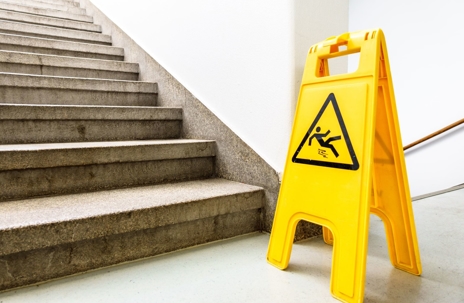Premises accidents come in all shapes and sizes, and attorneys who practice personal injury are well aware a premises liability claim can vary from the seemingly straightforward to the sizable challenge where even the smallest issues make or break a case.
At Biren Law Group, our Los Angeles premises liability attorneys have proven our ability to effectively determine liability in a range of premises cases – that is, accident cases which invoke liability for parties that own, control, occupy, or lease a particular space where victims are injured.
Do I Have a Premises Liability Claim?
Generally, you might have a potential claim for compensation if you’ve been injured on another’s property because premises owners:
- Failed to take reasonable care of their property, or inspect it;
- Knew about dangerous conditions on their property, or should have known about them;
- Failed to address a potential hazard, or provide adequate warnings or protections;
- Failed to recognize the foreseeability of accidents and injuries.
While landowners may be held liable for injuries on their property, the law and adversarial nature of civil personal injury lawsuits (known as “torts”) can make premises cases quite complex. It is not uncommon for defendants and insurance companies to raise carefully crafted defenses with the intent to shield themselves from liability or minimize it as much as possible.
Given these challenges, securing compensation for damages requires extensive insight into the nuances and essential elements of premises liability and established case law – as well as an understanding that premises cases are often made in their earliest phases with thorough and timely investigations.
Essential Elements of a Premises Liability Case
Premises liability cases are built on concepts of duty, negligence, notice, and the “reasonability” of efforts property owners must take to create a safe environment. When victims injured on another’s property bring claims against the property owner, they must prove:
- Legal Duty: The premises owner owed a duty of care to the victim;
- Breach of Duty: The premises owner failed to meet their legal duty because they were negligent or committed some other wrongful act; and
- Causation & Damages: As a result of the premises owner’s breach of duty, victims suffered actual damage (i.e. medical bills, lost income, and pain and suffering).
Duty Of Care In Premises Liability Cases
Per the California Civil Jury Instructions, a person or entity who owns, leases, occupies, or controls a property has “a duty to use reasonable care in keeping their property in a reasonably safe condition” (CACI No. 1001).
At the core of every premises liability case is the duty element, which generally requires landowners to:
- Keep their property in a reasonably safe condition;
- Use reasonable care to discover any unsafe conditions; and
- Fix, replace, or warn of dangers that could reasonably be expected to cause harm.
In California, it is well established that state law requires premises owners to maintain their property in a reasonably safe condition. In premises cases, liability is affirmative and non-delegable – anyone who “owns, leases, occupies, or controls” a property has a duty to exercise reasonable care (a duty to act) in its maintenance, and property owners cannot delegate their duty of care to a third party or independent contractor (such as a gardener, a pool man, or any other person or worker contracted to maintain a property).
Because a landowner cannot pass off their duty of care, the central issue in many premises claims concerns the scope of the duty a property owner owed the injured victims. The scope of a defendant’s duty is influenced by the unique facts of a case (i.e. where an accident occurred, how it occurred, and who it involved), and whether their actions were reasonable or negligent.
Reasonable Care & Property Owner Negligence
In proving negligence, victims will need to show the property owner failed to exercise “reasonable” care given the likelihood of harm posed by a dangerous condition. For example:
If a very deep and large open hole existed on the floor in the main entranceway of a business, a person would be obligated to reasonably address it (i.e. sectioning off the surrounding area to prevent access by customers, covering the hole temporarily until a permanent repair is made, etc.), as it would be very likely such a dangerous condition would cause injury. If a much smaller and shallower hole existed in the back storage room behind a locked door where no customers enter, what constitutes reasonable care would be different, as there is less likelihood of someone being injured.
When juries decide premises cases and whether a property owner was negligent for not using “reasonable” care in a particular situation, they are advised to consider several factors, including:
- The type of property and its location;
- The likelihood others would come to the property in the same way the victim did;
- The likelihood of harm created by the dangerous condition;
- Whether the defendant knew or should have known about the dangerous condition which created foreseeable risks of harm;
- How reasonable or difficult it was to protect against risks created by the dangerous condition.
Other Important Concepts In Property Accidents
A property owner – or a party that had sufficient control over the property or the conditions on it – is negligent if:
- A condition on the property created an unreasonable risk of harm; and
- They failed to act reasonably in discovering or addressing the dangerous condition.
Apart from “reasonableness” and “negligence,” there are other key issues in premises cases that may have bearing on how they’re argued and resolved, including:
- Trivial Defects: Generally, property owners are not liable for damages caused by minor or insignificant defects on the property (CACI 1003);
- Obviously Unsafe Conditions: If a dangerous condition is open and obvious, property owners do not have to warn others about it. However, even if they don’t have a duty to warn, they may still have a duty to take reasonable measures to protect against risks of injury, particularly if they are foreseeable (CACI 1004).
- Notice Requirement: Property owners are generally liable for injuries caused by dangerous conditions they failed to address if they knew or should have known about it; specifically, if they had actual knowledge of a dangerous condition (i.e. the owner, or its employee, created the dangerous condition), or constructive knowledge of a dangerous condition (i.e. the owner, through reasonable efforts, failed to discover the hazard).
- Victim Legal Status: Today, California has largely done away with requirements that victims be of a specific legal status in order to hold landowners liable for injuries on their property. Regardless of whether they are an invitee, a licensee, or a trespasser (including children drawn to private property by attractive nuisances), victims injured on another’s property will need to determine whether landowners used reasonable case to keep its premises safe, especially in relation to the foreseeability of risks.
- Public Entities: Public entities enjoy what’s known as sovereign immunity, a legal theory which limits liability for injuries caused by the negligence of government entities or its contractors. Under both the Federal Tort Claims Act (FTCA) and the California Tort Claims Act (CTCA), local, state, and federal entities have these protections. What’s more, victims with potential claims are subject to shorter statutes of limitations, and various procedural rules, including requirements to provide the government with a Notice of Claim.
- Comparative Fault: Personal injury defendants often argue victims bore some responsibility for contributing to their own injuries (known as comparative negligence), to limit their liability. In premises cases, a plaintiff’s duty is not the same as a defendants’. While there may be laws or regulations regarding a victim’s conduct at the time of an accident, plaintiffs in premises cases generally owe only a duty to themselves to exercise reasonable care in not exposing themselves to dangerous conditions arising from a property owner’s negligence, rather than avoiding specific injuries. Fighting these defenses is case-specific, but always critical to strengthening victims’ cases, and preventing jury confusion.
Common Types of Premises Liability Cases
In this blog series, Biren Law Group will illustrate these concepts by focusing on specific premises liability cases, how property accidents are investigated, and the types of issues and challenges they can create:
Biren Law Group is a nationally recognized civil trial practice and boutique law firm that’s fights for victims and families across Los Angeles and Southern California following preventable injuries caused by the negligence of others. Over the years, our family-owned law firm has prioritized the personal needs of clients, and has leveraged the experience of Father-Son team Matthew B.F. Biren and Andrew Biren to recover millions in compensation in a range of cases – including those involving premises liability, serious injury, and wrongful death.
Call (310) 774-0078 or contact us online to request a free evaluation of your case.

